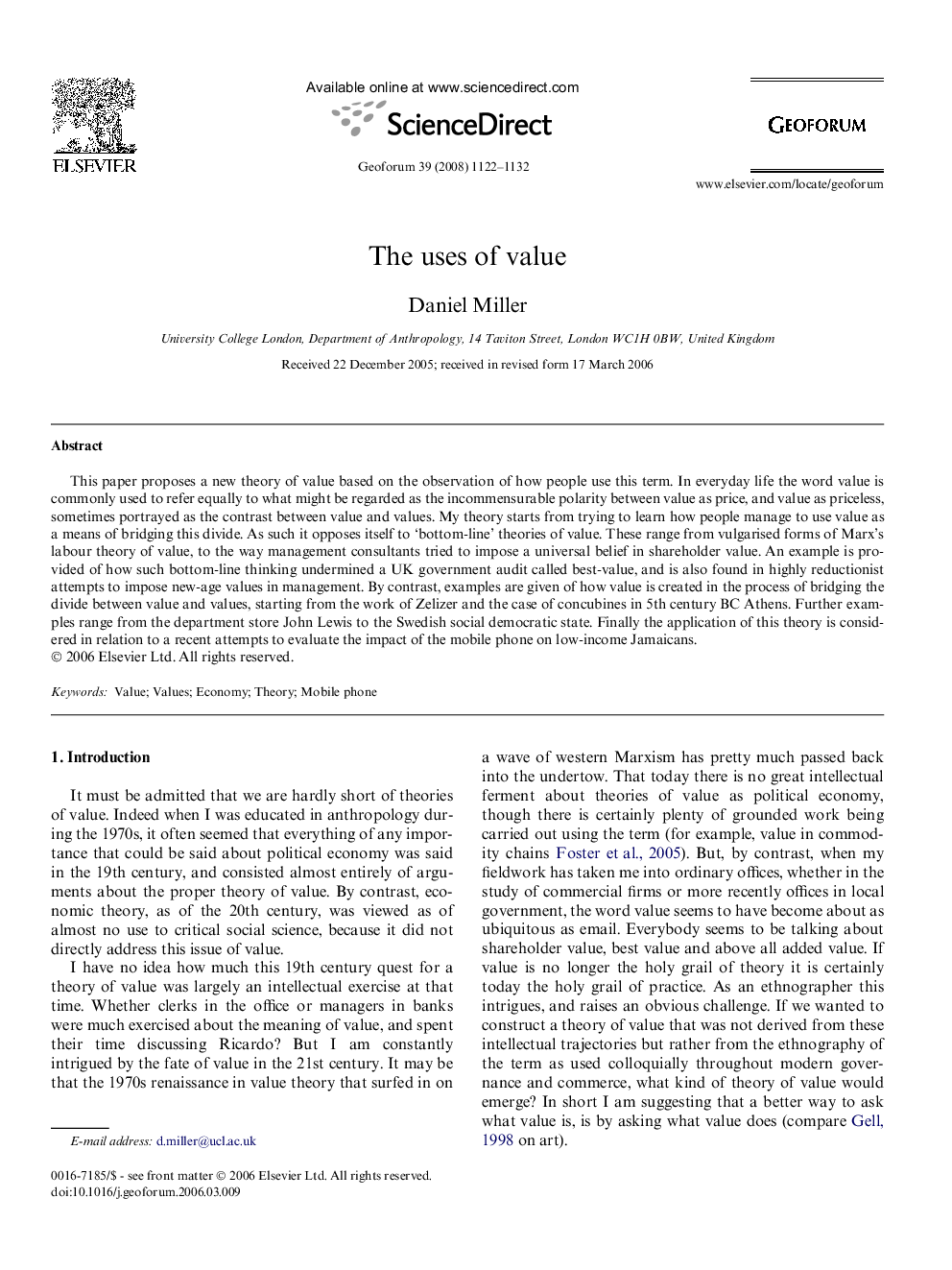| Article ID | Journal | Published Year | Pages | File Type |
|---|---|---|---|---|
| 5075110 | Geoforum | 2008 | 11 Pages |
Abstract
This paper proposes a new theory of value based on the observation of how people use this term. In everyday life the word value is commonly used to refer equally to what might be regarded as the incommensurable polarity between value as price, and value as priceless, sometimes portrayed as the contrast between value and values. My theory starts from trying to learn how people manage to use value as a means of bridging this divide. As such it opposes itself to 'bottom-line' theories of value. These range from vulgarised forms of Marx's labour theory of value, to the way management consultants tried to impose a universal belief in shareholder value. An example is provided of how such bottom-line thinking undermined a UK government audit called best-value, and is also found in highly reductionist attempts to impose new-age values in management. By contrast, examples are given of how value is created in the process of bridging the divide between value and values, starting from the work of Zelizer and the case of concubines in 5th century BC Athens. Further examples range from the department store John Lewis to the Swedish social democratic state. Finally the application of this theory is considered in relation to a recent attempts to evaluate the impact of the mobile phone on low-income Jamaicans.
Keywords
Related Topics
Social Sciences and Humanities
Economics, Econometrics and Finance
Economics and Econometrics
Authors
Daniel Miller,
